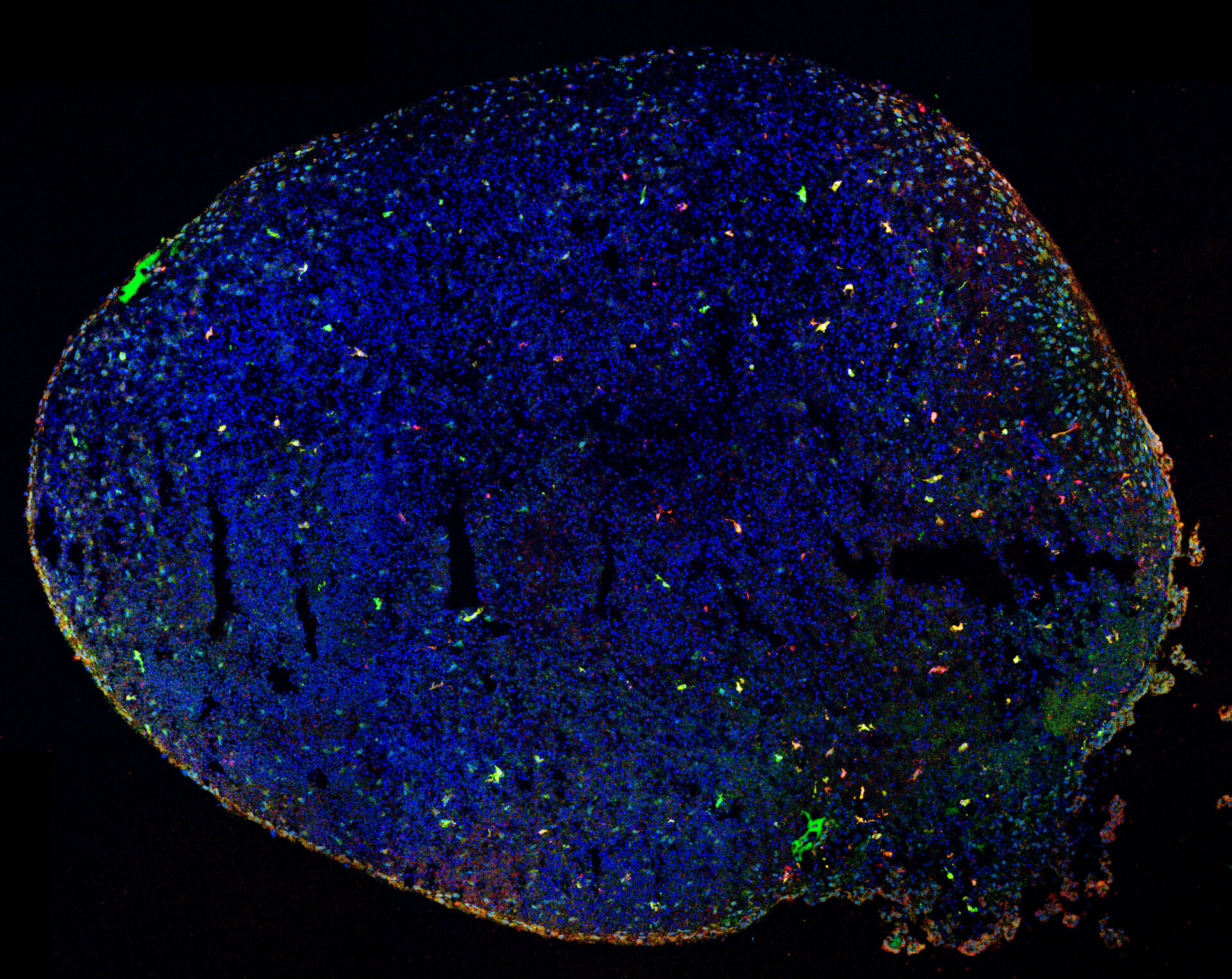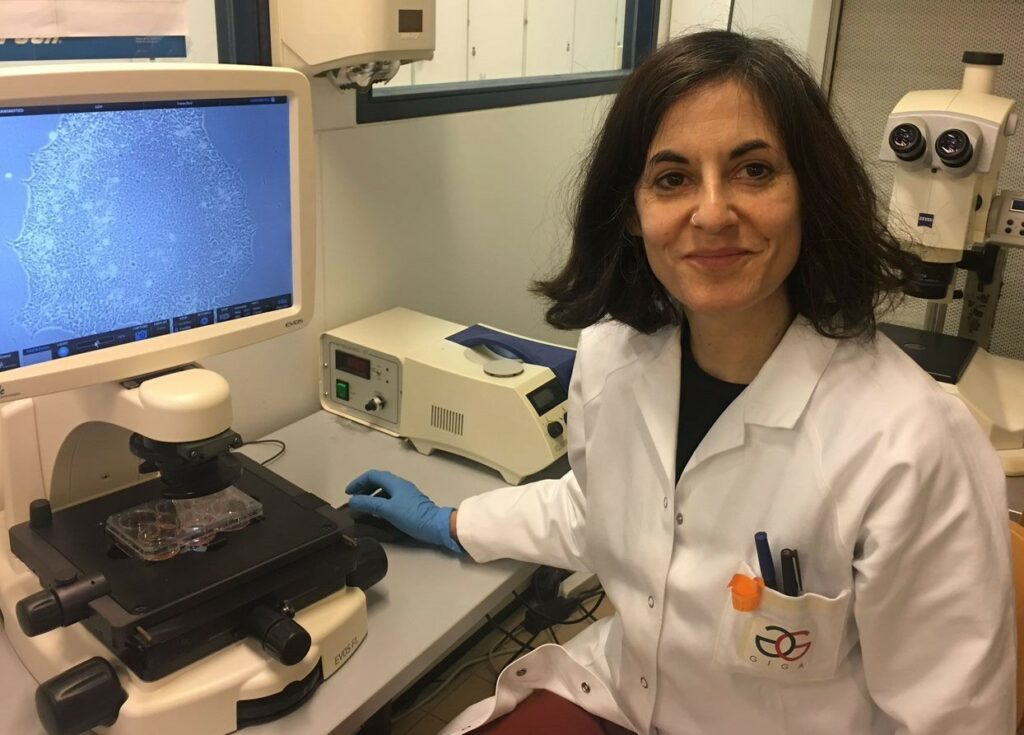A Belgian team of scientists have made a major breakthrough, opening up a new avenue of research to treat Alzheimer's, by growing and sustaining "mini-brains" in vitro over a long period of time.
For years, researchers have been learning how to develop "organoids" or in vitro models of organs, but such brains have never been kept in culture long enough for the study of age-related neurodegenerative conditions such as Alzheimer's disease, the most common form of dementia.
However, a team of scientists based at the University hopsital of Liège (ULiège) has now succeeded in growing such mini-brains which mimic the organ over a long period of time, a world first and major scientific breakthrough.

Image showcases the technology used to find a possible treatment for the incurable disease. Credit: Stichting Alzheimer Onderzoek
"My team has been able to develop methods to improve the longevity of these mini-brains. We can now keep them in culture for up to six months to better understand Alzheimer's disease and find new strategies against it," said ULiège's Professor Ira Espuny Camacho.
In Belgium, some 220,000 people are diagnosed with dementia: 70% of cases involve Alzheimer's. Currently, there is no cure for the disease, only treatments that act on the development of symptoms and manage to slow down the evolution of the disease for some time.
Related News
- Mediterranean diet can reduce the risk of dementia, UK study says
- VUB researcher gets funding to modify immune cells in the brain
"This is why it is essential to invest in research that provides more insight into this still mysterious disease," said Joost Martens, director of Stop Alzheimer's Foundation, which helped fund this research together with the King Baudouin Foundation.

